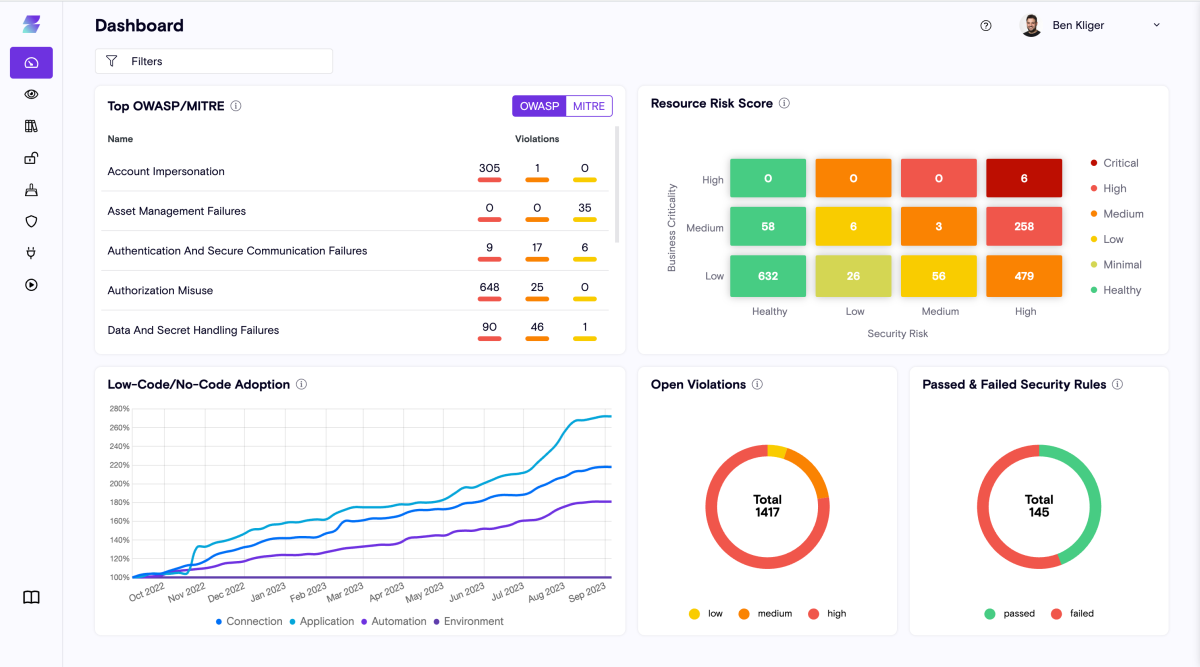Zenity raises $16.5 million in Seria A funding to keep no-code and low-code apps secure
Many companies now utilize low-code and no-code tools to create apps and workflows. However, these tools are primarily used by non-technical end users who may not be familiar with the basic rules of security and governance. Zenity, a new startup from Israel, has developed a solution. They recently announced a Series A investment of $16.5 million to develop their company further.

Ben Kliger and Michael Bargury, the co-founders, realized that while these tools allow users to create applications quickly, it may also pose some security risks. This double-edged sword can be problematic for businesses that do not have technical expertise.
According to Kliger, technology has made it possible for anyone to become a developer, which is a beautiful thing. These tools allow people to be more productive and create new solutions for themselves, their peers, and their organizations. However, not everyone is tech or security-savvy, which can result in significant issues for companies. Zenity aims to provide security organizations and application security teams within a company with more visibility into these new applications without limiting the users building them. Bargury notes that securing an app created by a professional developer or a business user is not much different, but there has been a lack of tooling for the latter.
Regardless of their creator or creation process, applications have an identity, touch data, and authenticate users. Problems with the logic of an application could arise, and it is crucial to think about this. Thus, the same problems we have attempted to solve in application security for developers must now be addressed for business users.
Zenity utilizes APIs to connect with no-code/low-code tools and gather metadata and other relevant information about the programs being created. It then scans for potential security issues, such as exposed data or mishandled identity, and alerts the security teams through a centralized dashboard. The teams can rectify these issues, using them as an opportunity to educate citizen developers. Depending on the organization’s approach and requirements, they can either automate the fixes or send them back to the developers for correction.
The two founders of Zenity were colleagues at Microsoft and recognized the problem of a large client making extensive use of no-code tools. In 2021, they collaborated to launch Zenity, now widely available. Although the number of customers has not been disclosed, the company has grown from two founders to a team of 25 individuals, with ongoing recruitment efforts supported by the recent $16.5 million funding round. Intel Capital led the investment, with participation from existing investors Vertex Ventures and UpWest and new investors Gefen Capital and B5. Yoni Greifman, investment director at Intel Capital, will join the startup’s board of directors as part of the agreement.